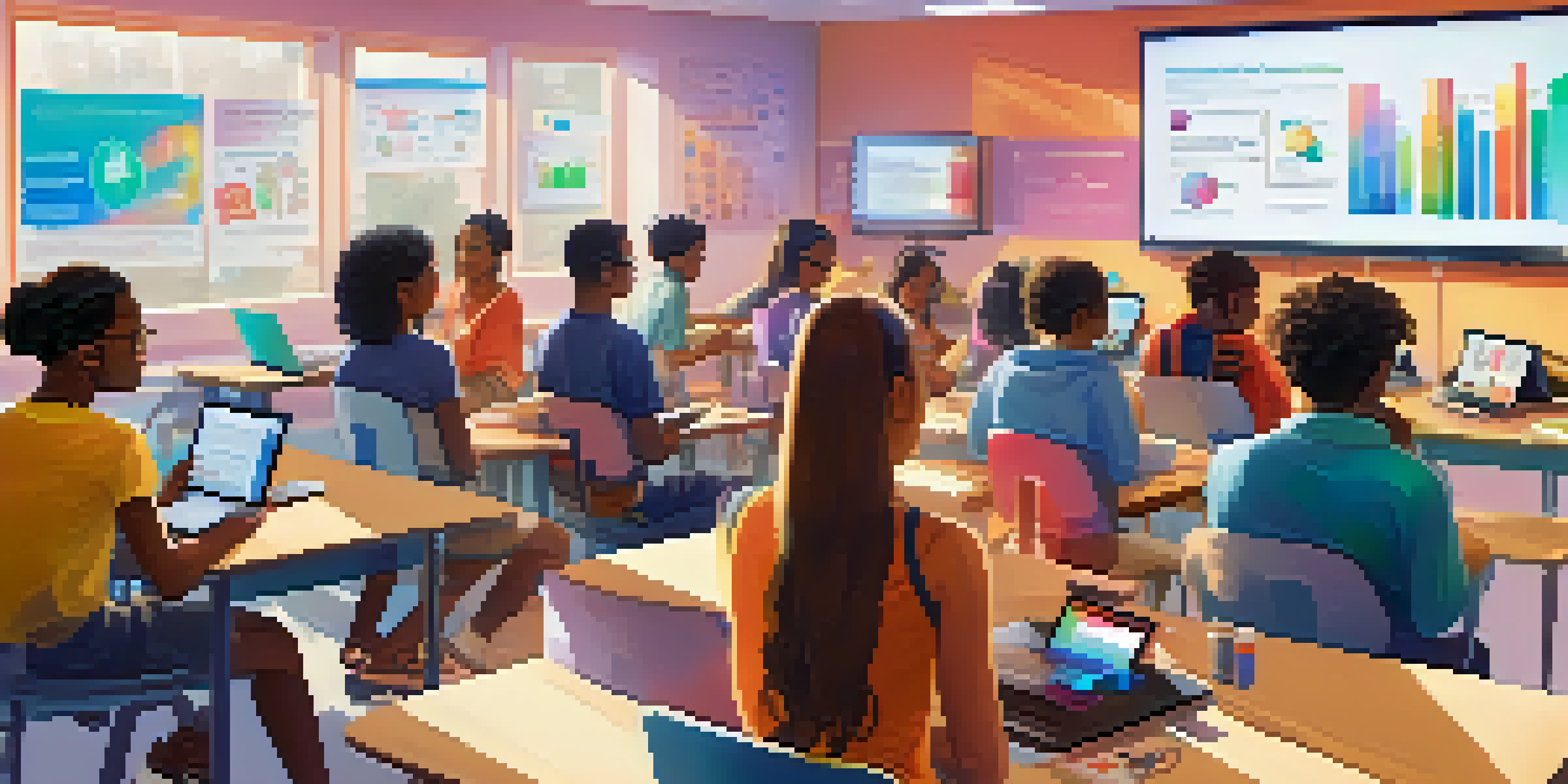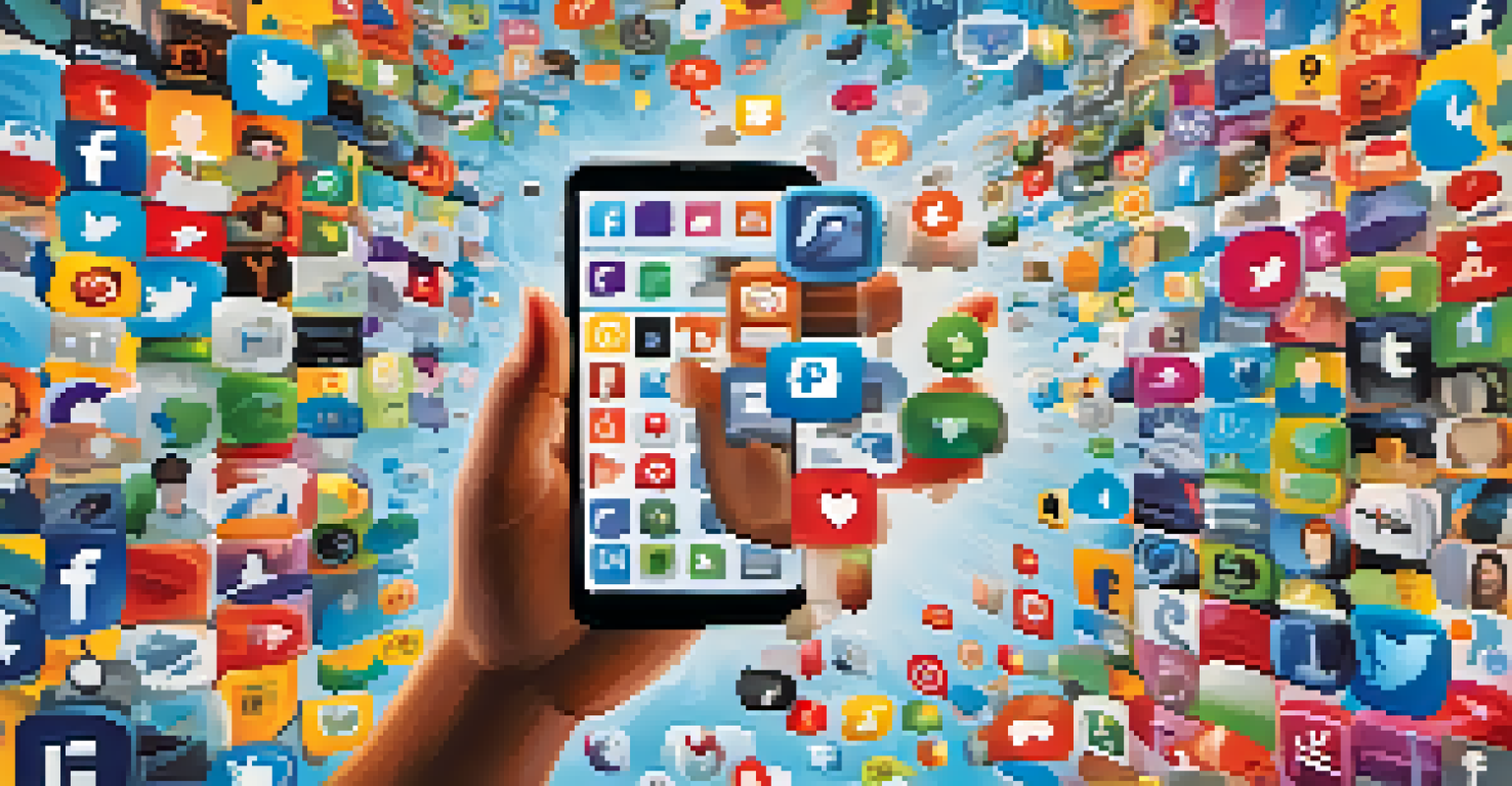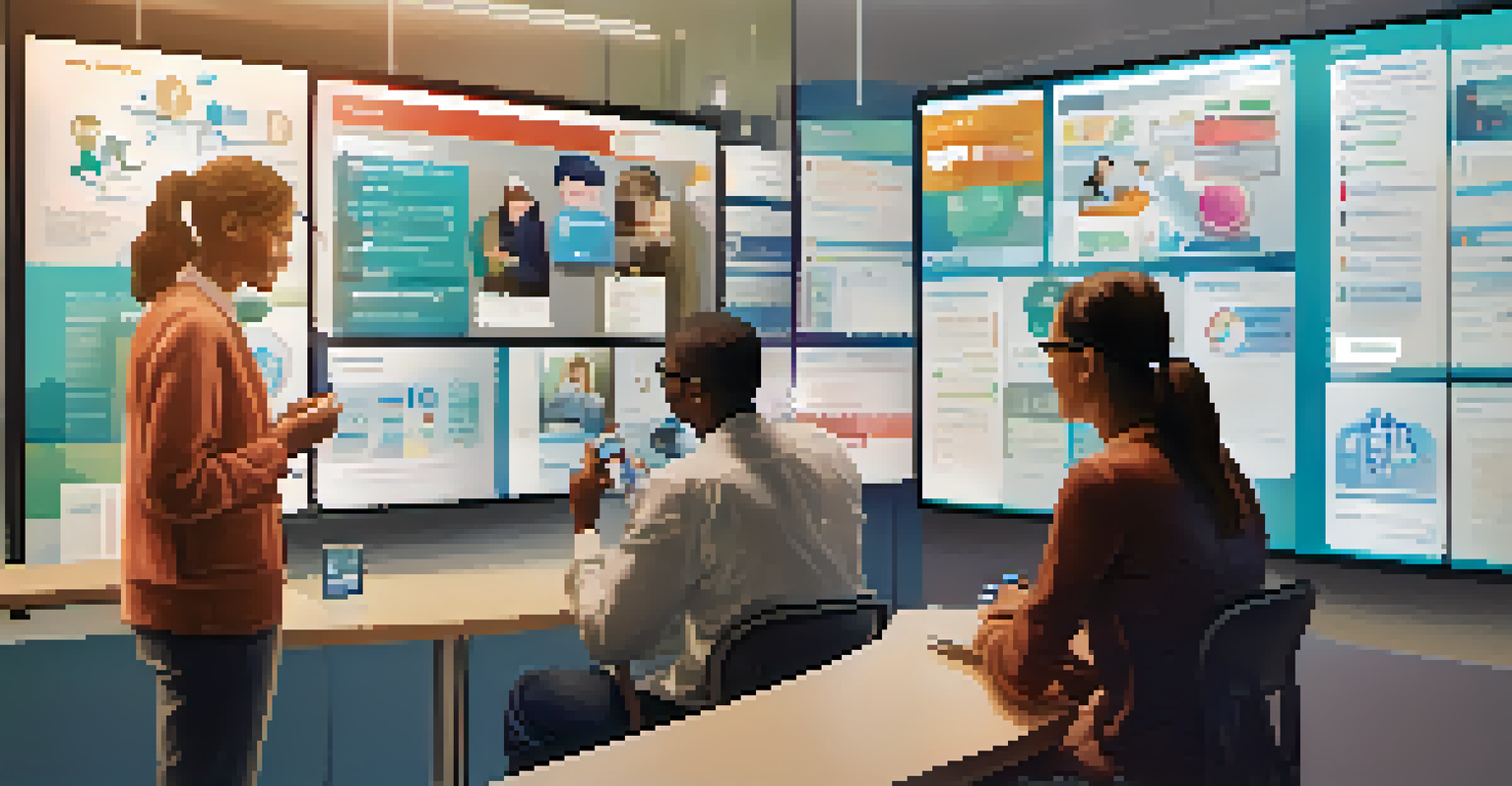Social Media and Health Literacy: Navigating Misinformation

Understanding Health Literacy in the Digital Age
Health literacy refers to the ability to obtain, process, and understand basic health information. In today's digital age, this concept has evolved significantly, especially with the rise of social media. People now navigate a sea of information online, where reliable resources can be buried under misleading claims.
In the age of information, ignorance is a choice.
The challenge lies in evaluating the credibility of sources. With just a few clicks, anyone can share health-related content, making it hard to distinguish fact from fiction. This is where health literacy becomes crucial, as it empowers individuals to make informed decisions about their health.
In essence, improving health literacy means equipping people with the skills to critically assess the information they encounter online. This not only enhances their understanding of health issues but also fosters a healthier society overall.
The Role of Social Media in Spreading Misinformation
Social media platforms have transformed how we access and share information, but they've also become breeding grounds for misinformation. A single post can reach thousands, if not millions, of people in a matter of minutes, often without any verification. This rapid spread makes it challenging to contain false information once it's out.

For instance, during health crises like the COVID-19 pandemic, various myths and false treatments circulated widely, causing confusion and panic. Social media's viral nature means that these misconceptions can quickly overshadow factual information from reputable sources.
Navigating Health Info Online
Improving health literacy empowers individuals to critically assess online health information, distinguishing fact from misinformation.
Understanding the mechanics of social media and its implications for health information can help individuals navigate these platforms more wisely. By being aware of the potential for misinformation, users can approach health content with a more critical mindset.
Identifying Reliable Health Information Online
Navigating the vast ocean of health information online requires a discerning eye. Reliable sources often have recognizable characteristics, such as clear authorship, citations, and backing by reputable organizations. For instance, health websites affiliated with government agencies or respected medical institutions are typically trustworthy.
The greatest weapon against stress is our ability to choose one thought over another.
One useful strategy is to check for the publication date; outdated information can lead to harmful decisions. Additionally, cross-referencing information across multiple reliable sources can confirm its accuracy. This practice not only bolsters confidence in the information but also enhances overall health literacy.
By honing these skills, individuals can better equip themselves to sift through the noise and find credible health advice. This proactive approach is essential in an age where misinformation can have serious consequences.
The Impact of Influencers on Health Perceptions
Influencers have become major players in the realm of social media, often shaping health perceptions among their followers. Their ability to reach large audiences can amplify both beneficial and harmful health messages. While some influencers promote positive health practices, others may inadvertently share misleading or inaccurate information.
For example, a fitness influencer endorsing a certain diet without scientific backing can mislead their audience into unhealthy choices. This highlights the importance of scrutinizing the qualifications of those we follow for health advice. Just because someone has a large following doesn't mean their information is reliable.
Misinformation on Social Media
Social media serves as a rapid spreader of health misinformation, making it essential for users to evaluate the credibility of sources.
It's vital for followers to consider the source of health information shared by influencers. Encouraging critical thinking and skepticism can help individuals navigate these messages more effectively.
The Importance of Digital Health Literacy Education
To combat misinformation effectively, digital health literacy education is essential. This involves teaching individuals how to find, evaluate, and use health information online. Educational initiatives can empower people to become savvy consumers of health content, capable of making informed decisions.
Implementing programs in schools and community centers can target various demographics, ensuring that everyone has the skills needed to navigate the digital landscape. This education can include workshops, online courses, or even social media campaigns that promote critical thinking.
By fostering a culture of digital health literacy, we can create a more informed public that is less susceptible to misinformation. This not only benefits individual health choices but also strengthens community health as a whole.
Collaboration Between Health Organizations and Social Media
Health organizations play a crucial role in combating misinformation on social media. By collaborating with these platforms, they can disseminate accurate information more widely and counteract false claims. This partnership can involve creating verified accounts that provide updates and clarify misconceptions.
For instance, the World Health Organization (WHO) has launched campaigns to address misinformation during health emergencies, providing real-time updates and factual content. This proactive approach allows organizations to be at the forefront of health communication online.
Education is Key to Combat Misinformation
Digital health literacy education equips people with the skills to find and share accurate health information, fostering a healthier community.
Such collaborations not only enhance the credibility of health information but also encourage users to seek out authoritative sources. By reinforcing the presence of reliable voices in the digital space, we can mitigate the impact of misinformation.
Empowering Users to Share Accurate Health Information
While misinformation can spread like wildfire, individuals can also play a pivotal role in promoting accurate health information. By sharing reliable resources and engaging in informed discussions, users can help create a more truthful online environment. It begins with each person taking responsibility for the information they choose to share.
For example, when encountering a potentially misleading post, users can fact-check and provide evidence-based information in the comments. This not only educates others but also encourages a culture of accountability on social media.

Ultimately, empowering users to be proactive about sharing accurate health information can lead to a ripple effect, fostering a more informed community. Every small action counts in the fight against misinformation.